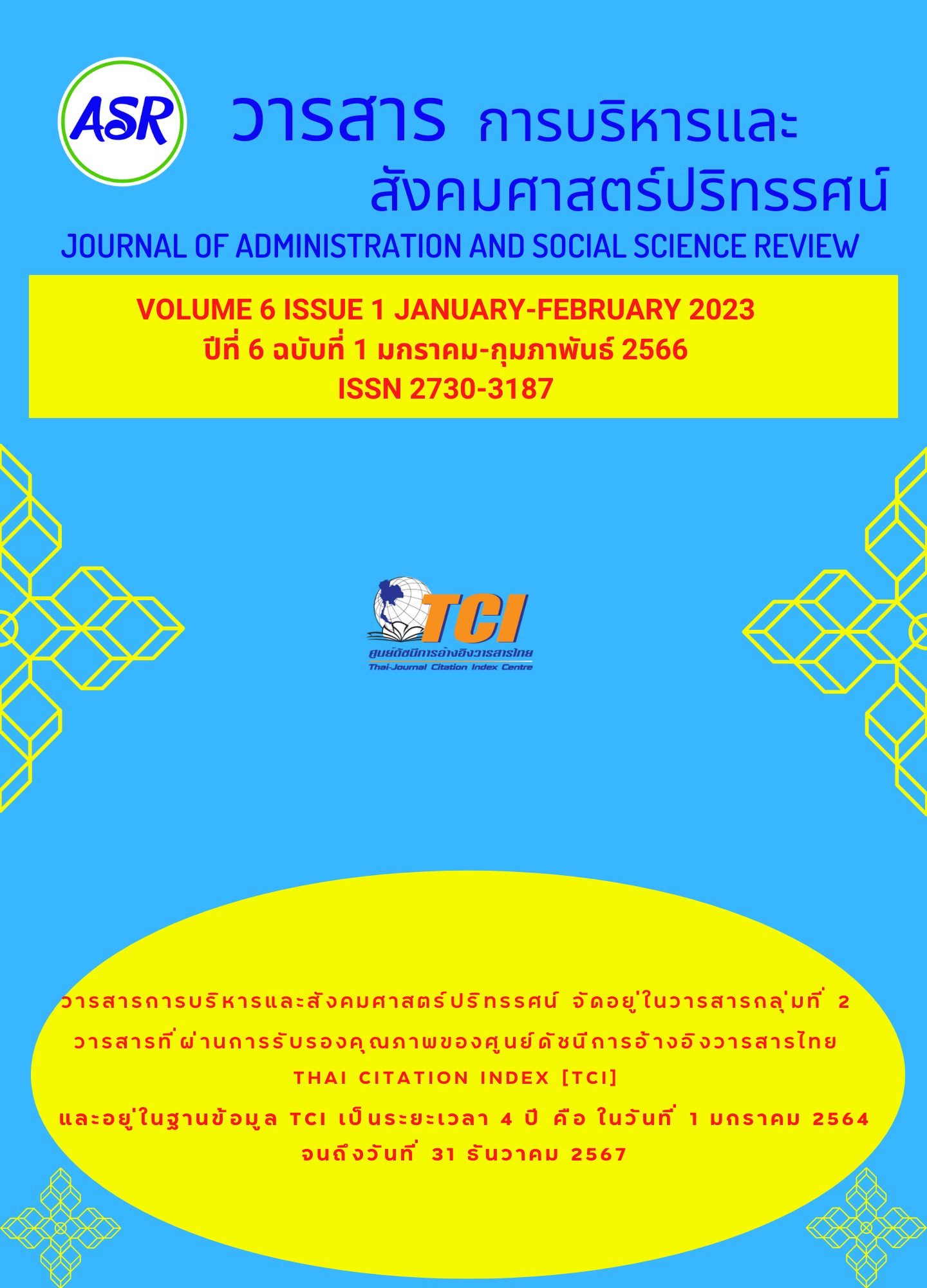Predictive Model for Crime Prevention Efficiency by Private Security under the Office of Security, the War Veterans Organization of Thailand in Nonthaburi Province
Keywords:
Crime prevention, efficiency, private securityAbstract
The purposes of this research were: to 1) examine the level of roles, welfare, work support, and the efficiency of crime prevention by the private security; 2) to examine the connection between the roles, welfare, and security officer support about the efficiency of crime prevention; 3) to examine the predictive model for crime prevention efficiency of the private security; and 4) to examine ways to improve the efficiency of crime prevention by the private security. The population of the study was the private security under the Office of Security, the War Veterans Organization of Thailand in the Nonthaburi province area 773 cases, and the sample group was 264 cases. Research instruments were the frequency, percentage, mean, standard deviation, Pearson correlation coefficients, and stepwise multiple regression analysis.
The results showed that the majority of the participants were men, aged around 40 to 50, with a lower secondary school diploma or an equivalent education. They held a position as the private security and had 6 to 10 years of experience in this field. The level of opinions about the role of the private security and the efficiency of crime prevention by the private security was extremely high; the level of the welfare of the private security and the support of private security was high. The private security role, welfare, and support had a weak connection with the efficiency of crime prevention by the private security. Collaboration with appropriate agencies, relationship building with local police departments, and participation in crime prevention networks had a capability for predicting crime prevention efficiency by 21.5 percent.



